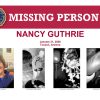New Zealand has further tightened border controls amid mounting anxiety about the new strain of coronavirus driving up infections overseas.
Six cases of the new variant of the virus – five in arrivals from the UK and one from South Africa – were recorded in managed isolation facilities in the two weeks leading up to Christmas.
Travellers to New Zealand from the US and UK will now be required to show a negative test for Covid-19 before departure, as well as taking a test on their arrival in quarantine in addition to those on days three and 12. The border remains mostly closed to non-citizens.
Golden ticket: the lucky tourists sitting out coronavirus in New Zealand
Read more
The Ministry of Health said in a statement on Sunday that these were “extra precautionary steps [to] provide another layer of protection” against the new strain of coronavirus, recorded in more than 30 countries.
Though there has been no community transmission of coronavirus in New Zealand since 18 November, Auckland University microbiologist Siouxsie Wiles said the new variant – which is reported to be more infectious – would challenge the country’s safeguards. “If there are any chinks in the chain, it will find them,” she told Stuff.
For New Zealanders in the UK and the US wanting to come home, the new requirement to obtain a test is an additional barrier on top of flight cancellations and the long wait for a vacancy in quarantine.
The vast majority of the 5,800 spots in the 32 managed isolation and quarantine (MIQ) facilities across New Zealand were occupied over Christmas and New Year in Kiwis’ rush to return. Stuff reports that the earliest available vacancy was in mid-March.
Though spots do become available at last minute, the date of arrival at MIQ needs to be matched against a confirmed flight booking, though according to Stuff, the government is set to relax this somewhat due to ongoing disruptions.
Ardern unveils New Zealand Covid vaccine deals as economy rebounds
Read more
Wiles had earlier cautioned the government against requiring a negative test result pre-departure, saying that it would not necessarily work to protect New Zealand and may impose an unfair barrier to entry, with Covid-19 tests hard and often expensive to access in the US and UK.
On top of “the problem of who can afford the test,” Wiles told Radio New Zealand’s Morning Report programme last week, “… there’s no guarantee that when you get tested and you test negative, that you then wouldn’t become positive en route to the airport, or on the plane.”
The opposition National party has been pushing for the measure since August, with spokesman Chris Bishop telling Morning Report that the next step would be to make a negative result a requirement of all arrivals, not just those from the US and UK.
“We’ve simply got to keep Covid out of New Zealand, the prospect of more lockdowns and more community transmissions in New Zealand is not something I think anyone listening would want and we simply have to have a hard line.”
Within New Zealand, public health officials are urging against complacency with a campaign for Kiwis to keep up with Covid-safe behaviours. Large gatherings of young people have been identified as a particular risk.
The government’s “make summer unstoppable” campaign has targeted partygoers presenting with coughs to “sit this one out” and installed “sani-squads” to dole out hand sanitiser at music festivals.
The Rhythm and Vines festival over New Year’s Eve was interrupted by a public service announcement from Dr Ashley Bloomfield, the director-general of health – set to a dubstep beat.
Elle Hunt
(@elle_hunt)
A New Year’s Eve music festival in New Zealand, feat. beloved public health official Ashley Bloomfieldpic.twitter.com/TveiLB196b
January 2, 2021























































Свежие комментарии